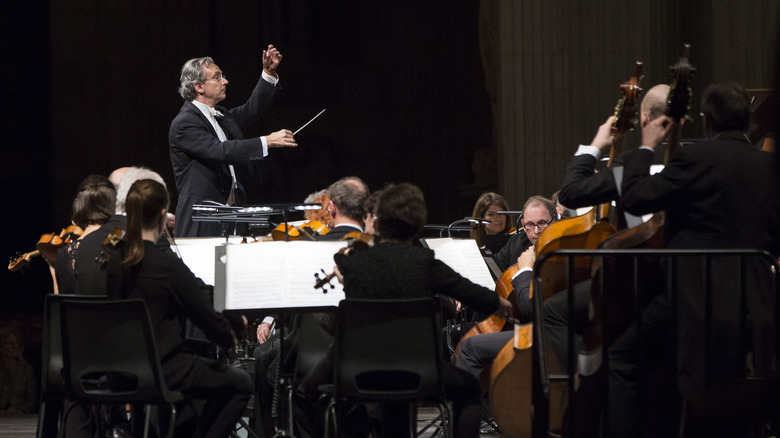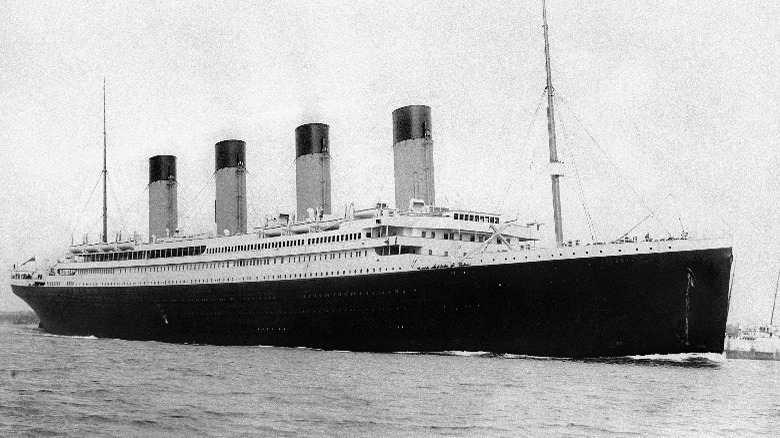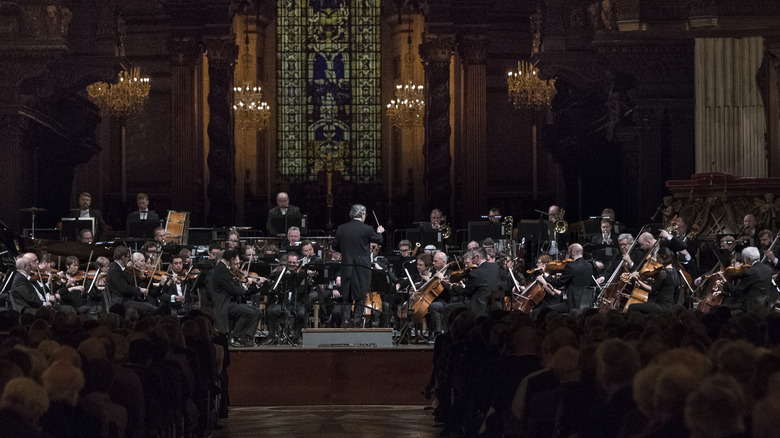The London Symphony Orchestra Would Have Been On The Titanic If Not For A Last-Minute Change
The London Symphony Orchestra (LSO) is one of the world's most prestigious orchestras, delighting fans the world over for more than a century. According to the website for the LSO, John Williams employed them to record some of his most beloved scores, a relationship that dates back to the music he composed for "Star Wars: A New Hope" in 1977. It's not just his film scores that the LSO has played; the orchestra has also performed and recorded many of his non-film work as well.
While the LSO may be better known to modern audiences for its film score recordings, it also has a long and fascinating history that predates its more mainstream projects. As stated on Classic FM, the LSO was founded in 1904 by a group of musicians who broke off from the Henry Wood Queen's Hall Orchestra to start their own ensemble. It wasn't long before the group established itself as a musical force to be reckoned with, as it convinced the distinguished Hans Richter to become their first official conductor. British composer Sir Edward Elgar also led the LSO for a time, further proving the orchestra's ability to attract esteemed talent. However, the future of the London Symphony Orchestra could have been very different were it not for a last-minute change in 1912.
A fateful itinerary change
According to WQXR, the London Symphony Orchestra was to make its first North American tour in 1912. The itinerary called for the orchestra to make the trek across the pond aboard the RMS Titanic. However, a series of events led to a 12th-hour change of plans. In September 1911, another ship, the RMS Olympic, experienced severe damage when it crashed into a British naval warship. While the Olympic was salvageable, it was in dire need of repairs so that it could get back into working condition as soon as possible. To accomplish this, some of the workers who were putting the final touches on the Titanic were reassigned to work on the Olympic, which pushed Titanic's launch from March 20 to April 10, 1912.
Of course, per WQXR, this would've drastically affected the tour schedule of the LSO. So instead of trying to reschedule all 32 of their performances, it was decided that the musicians would take the SS Baltic to begin the North American tour. Little did they realize at the time how much that change in passage would ultimately save their lives.
A touching tribute to fallen musicians
While the LSO didn't meet the tragic end experienced by many of Titanic's passengers, it still had some close calls, according to Classic FM. Besides the fact that everyone aboard the ship had the heartbreaking loss of those who died on the Titanic on their minds, the SS Baltic had to contend with storms, icebergs, and other unforeseen events that made the trip understandably nerve-wracking.
Several members of the LSO had professional acquaintances who passed away when the Titanic sank. So it was only fitting that the orchestra performed a memorial concert in London a month after the disaster. As stated by Classic FM, this emotional concert was held at the Royal Albert Hall and featured such luminaries as Sir Edward Elgar, Sir Henry Wood, and Thomas Beecham leading the orchestra. This special performance concluded with an orchestral and organ rendition of "Nearer My God to Thee," which featured the audience's participation.


